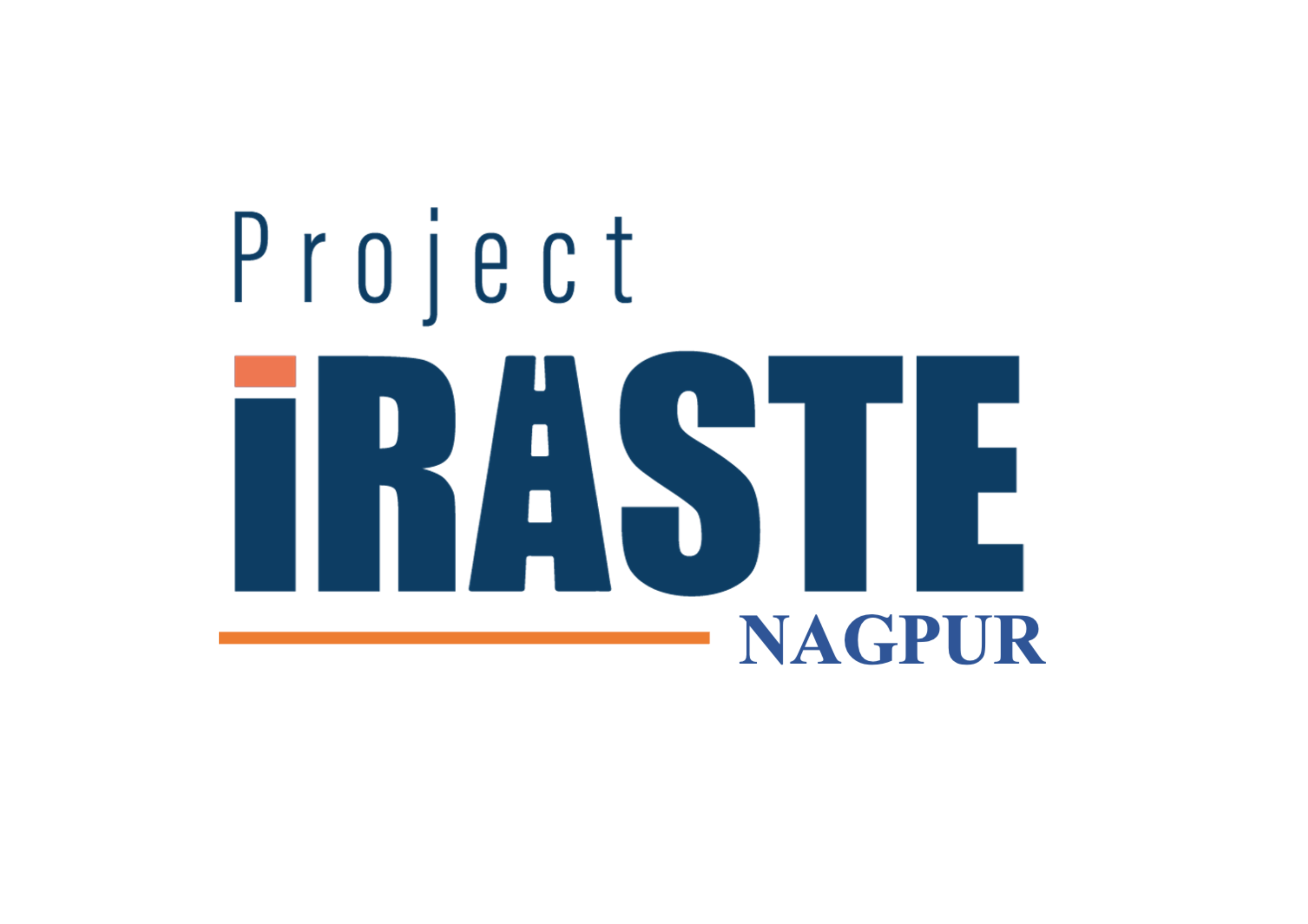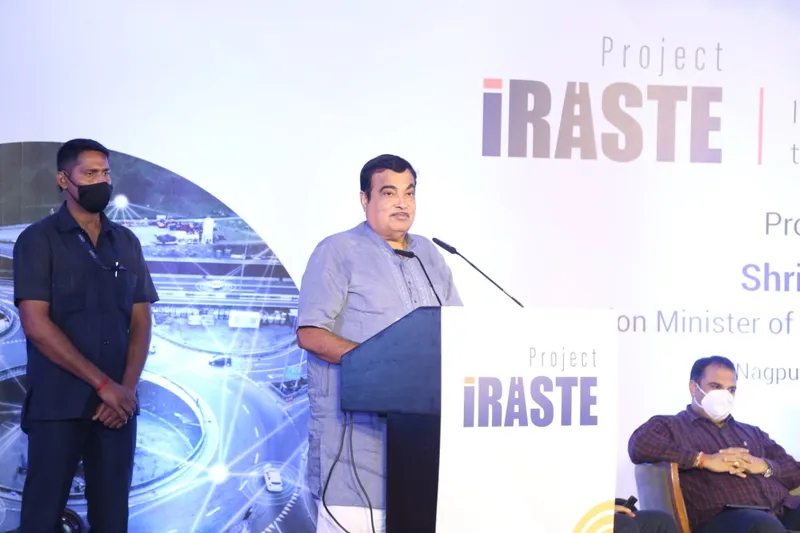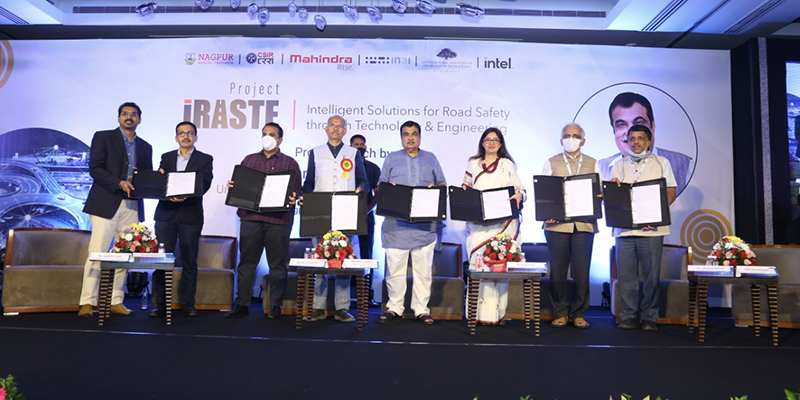
iRASTE
View Brand PublisherHow the launch of Project iRASTE will help India reduce road fatalities by up to 50pc
Union Minister Nitin Gadkari on Saturday launched “iRASTE”, an AI-powered project, implemented in Nagpur, Maharashtra with the aim of reducing accidents by 50 percent.
In a unique collaborative initiative between the government, industry and academia towards advancing road safety, Intel, INAI, IIIT-H (International Institute of Information Technology-Hyderabad), CSIR-CRRI (Central Road Research Institute), Mahindra & Mahindra, and NMC (Nagpur Municipal Corporation) together launched Project iRASTE (intelligent Solutions for Road Safety through Technology and Engineering) in Nagpur. Leveraging the power of AI (Artificial Intelligence), this pivotal project aims to achieve up to 50 percent decline in road accidents in Nagpur city and create a blueprint to Vision Zero for the country. Project iRASTE was launched in Nagpur by the Minister for Road Transport and Highways of India, Shri Nitin Gadkari.
Commenting on the launch, Nivruti Rai, Country Head, Intel India and Vice President, Intel Foundry Services said, “Technologies such as Artificial Intelligence will play a transformational role in enabling smarter and safer vehicles, roads and drivers. Intel is committed to enabling road safety and reducing fatalities in India through the use of technology solutions. I am excited to launch Project iRASTE, a unique collaborative initiative that brings together critical players to drive road safety in Nagpur and develop a blueprint for country-wide adoption towards Vision Zero.”
Creating safe and sustainable roads for India - starting with Nagpur
Project iRASTE was launched in Nagpur by the Minister for Road Transport and Highways of India, Shri Nitin Gadkari. Under this project, Nagpur Municipal Corporation’s fleet of vehicles will be equipped with collision avoidance technology that can reduce accidents and near misses by up to 60 percent. Sensors in these technologies will also help map the dynamic risk of the entire road network (grey spot map) for the first time. Road maintenance agencies can use such information to prevent accident-prone zones (black spots) before they claim lives. Project iRASTE will conduct detailed studies to recommend engineering fixes for existing black spots and implement an AI-powered system for continuous monitoring of road infrastructure quality.

Speaking on the occasion, Nitin Gadkari, Union Minister for Road Transport and Highways, Government of India, who launched the project said, “The unique initiative will try to bring down fatality on Nagpur roads by 50 per cent. The drive would then be extended to other cities of India.”
“Annually, India loses about 1.5 lakh lives every year in road accidents. Nagpur loses 250 lives in road accidents every year, at the rate of eight deaths per 1 lakh population, which is four times that of Mumbai,” he added, talking about the urgent need for collaboration and initiatives like iRASTE to address the challenges to road safety in India.
Commenting on the collaboration, Professor P.J. Narayanan, Director, IIIT-H said, “Academic institutions have enormous knowledge and expertise that can and must be used to improve the condition of society. IIIT Hyderabad has been focussing on Applied Research that does precisely that. Through INAI, we want to transform academic expertise into population-scale impact. Roads and vehicles are the lifeline of the country but are also fraught with danger to drivers and pedestrians. We look forward to playing a role in reducing accidents significantly through the iRASTE project in the coming years.”
New-age tech to solve mobility problems
Redefining road safety with an innovative and holistic framework, Project iRASTE focuses on the three key aspects of vehicle safety, mobility analysis and road infrastructure safety. It aims to re-imagine road safety with the predictive power of AI. Advanced Driving Assistance Systems (ADAS) will offer an economical way to enhance the safety of fleets and road users. ADAS alerts, alongside driver assessments and training can notably improve driver performance. Mobility analysis will continuously monitor dynamic risks of the entire road network to define grey and black spots – areas that are high risk or accident prone. Preventive maintenance of such stretches will avert black spots before they claim lives.
About the project, Dr Shekhar C. Mande, DG, CSIR said, “This is a wonderful example of multi-institutional collaboration between different partners from academics, industry and government with complementary skills to address the problems faced by society on a daily basis.”
“I am glad to note that CSIR-Central Road Research Institute (CRRI) a pioneer in introducing the road safety audit programs on national and state highways and having completed the road safety audit of almost 9000 km will be providing necessary technical guidance in this project. They will help in identifying the accident-prone locations and also evaluate the drivers' behaviour before and after installation of CAS (Collision Avoidance System) in their vehicles. This project being in Nagpur will certainly be a milestone in tackling the issue of road safety in India through intervention of advanced technologies and can be emulated in different cities as well,” he added.
Project iRASTE uniquely leverages the expertise and capabilities of each of the partners. Intel India brings onboard systems based on ADAS technology. CSIR-CRRI brings domain expertise in road engineering and IIIT-Hyderabad is undertaking AI-based research to address population-scale road safety through the INAI center for applied AI research. Finally, Mahindra & Mahindra with their vast experience of driving major road initiatives will conduct road safety public awareness programs and driver training in Nagpur.
On the road to progress already
While iRASTE is a two-year-old project, it has initiated work on all three vectors of vehicle safety, mobility analysis and infrastructure safety. Installation of Collision Avoidance Systems on city buses has also commenced. And finally, an initial GreySpot map of the city road network has been generated and studies are underway to carefully map existing blackspots on the road network.
Technologies such as Artificial Intelligence are playing a transformational role in enabling smarter and safer vehicles, roads and drivers - and we hope to be able to not just see but experience this innovation not just in Nagpur, but across India as well.









